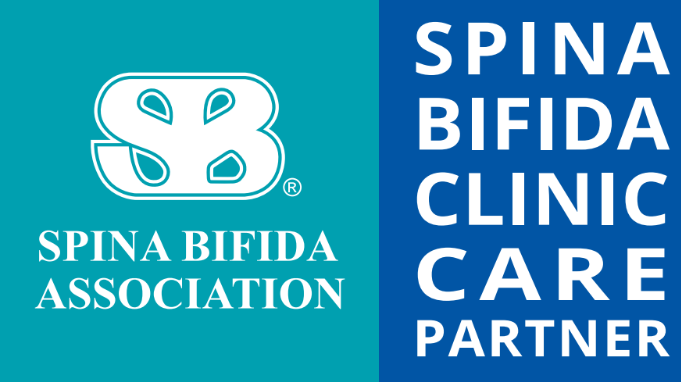Spina bifida results from the failure of the spine to close properly during the first month of pregnancy. In severe cases, the spinal cord protrudes through the back and may be covered by skin or a thin membrane.
At Kennedy Krieger, the Philip A. Keelty Center for Spina Bifida and Related Conditions serves children and adults with spina bifida, myelomeningocele (meningomyelocele), or myelodysplasia, as well as other related conditions of the brain and spine such as hydrocephalus, Arnold-Chiari malformation and tethered spinal cord syndrome.
Spina bifida results from the failure of the spine to close properly during the first month of pregnancy. In severe cases, the spinal cord protrudes through the back and may be covered by skin or a thin membrane. Surgery to close a newborn's back is generally performed within 24 hours after birth to minimize the risk of infection and to preserve existing function in the spinal cord.
Because of the paralysis resulting from the damage to the spinal cord, people born with spina bifida may need surgeries and other extensive medical care. The condition can also cause bowel and bladder complications. A large percentage of children born with spina bifida have hydrocephalus, the accumulation of fluid in the brain. Hydrocephalus is controlled by a surgical procedure called "shunting" which relieves the fluid build up in the brain by redirecting it into the abdominal area. Most children born with spina bifida live well into adulthood as a result of today's sophisticated medical techniques.
Examples, Subsets and Synonyms for Spina Bifida:
- Myelomeningocele
- Meningocele
- Myelodysplasia
Clinic Care Partner

The Philip A. Keelty Center for Spina Bifida and Related Conditions is a designated Clinic Care Partner of the Spina Bifida Association (SBA). The SBA Clinic Care Partner program is an initiative that stems from the existing Spina Bifida Collaborative Care Network (SBCCN), which works to identify the needs of people with Spina Bifida, connect with health care providers, identify clinics with the best outcomes and identify research priorities.
Clinics who become SBA Clinic Care Partners implement best practices so that people with Spina Bifida receive the best care possible in order to have fulfilling lives.
Additional Resources:
- Spina Bifida Association
- Birth Defects Research for Children
- CDC - Spina Bifida
- Family Voices
- Folic Acid Campaign, NCBDDD, CDC
- Genetic Alliance, Inc.
- National Birth Defects Prevention Network
- National Center for Learning Disabilities
- National Information Center for Children and Youth with Disabilities
- National Institute of Neurological Disorders and Stroke (NINDS)
- National Organization on Disability
- Spina Bifida and Hydrocephalus Association of Canada
- SCI Information Network
- The Arc of the United States
- Spina Bifida Association of Maryland
- Spina Bifida Association of National Capital Area
